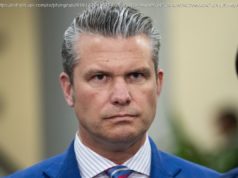This is an article I never imagined myself writing, that I never wanted to write, that I wish I could not write.
If I were a senator, I would not vote to confirm Brett Kavanaugh.
These are words I write with no pleasure, but with deep sadness. Unlike many people who will read them with glee—as validating preexisting political, philosophical, or jurisprudential opposition to Kavanaugh’s nomination—I have no hostility to or particular fear of conservative jurisprudence. I have a long relationship with Kavanaugh, and I have always liked him. I have admired his career on the D. C. Circuit. I have spoken warmly of him. I have published him. I have vouched publicly for his character—more than once—and taken a fair bit of heat for doing so. I have also spent a substantial portion of my adult life defending the proposition that judicial nominees are entitled to a measure of decency from the Senate and that there should be norms of civility within a process that showed Kavanaugh none even before the current allegations arose.
This is an article I never imagined myself writing, that I never wanted to write, that I wish I could not write.
Further reading: Jeff Flake criticizes Brett Kavanaugh
I am also keenly aware that rejecting Kavanaugh on the record currently before the Senate will set a dangerous precedent. The allegations against him remain unproven. They arose publicly late in the process and, by their nature, are not amenable to decisive factual rebuttal. It is a real possibility that Kavanaugh is telling the truth and that he has had his life turned upside down over a falsehood. Even assuming that Christine Blasey Ford’s allegations are entirely accurate, rejecting him on the current record could incentivize not merely other sexual-assault victims to come forward—which would be a salutary thing—but also other late-stage allegations of a non-falsifiable nature by people who are not acting in good faith. We are on a dangerous road, and the judicial confirmation wars are going to get a lot worse for our traveling down it.
Despite all of that, if I were a senator, I would vote against Kavanaugh’s confirmation. I would do it both because of Ford’s testimony and because of Kavanaugh’s. For reasons I will describe, I find her account more believable than his. I would also do it because whatever the truth of what happened in the summer of 1982, Thursday’s hearing left Kavanaugh nonviable as a justice.
A few days before the hearing, I detailed on this site the advice I would give to Kavanaugh if he asked me. He should, I argued, withdraw from consideration for elevation unless able to defend himself to a high degree of factual certainty without attacking Ford. He should remain a nominee, I argued, only if his defense would be sufficiently convincing that it would meet what we might term the “no asterisks” standard—that is, that it would plausibly convince even people who vociferously disagree with his jurisprudential views that he could serve credibly as a justice. His defense needed to make it possible for a reasonable pro-choice woman to find it a legitimate and acceptable prospect, if not an attractive or appealing one, that he might sit on a case reconsidering Roe v. Wade.
Kavanaugh, needless to say, did not take my advice. He stayed in, and he delivered on Thursday, by way of defense, a howl of rage. He went on the attack not against Ford—for that we can be grateful—but against Democrats on the Senate Judiciary Committee and beyond. His opening statement was an unprecedentedly partisan outburst of emotion from a would-be justice. I do not begrudge him the emotion, even the anger. He has been through a kind of hell that would leave any person gasping for air. But I cannot condone the partisanship—which was raw, undisguised, naked, and conspiratorial—from someone who asks for public faith as a dispassionate and impartial judicial actor. His performance was wholly inconsistent with the conduct we should expect from a member of the judiciary.
Read Julian Zelizer on what happened to Lindsey Graham
Consider the judicial function as described by Kavanaugh himself at his first hearing. That Brett Kavanaugh described a “good judge [as] an umpire—a neutral and impartial arbiter who favors no litigant or policy.” That Brett Kavanaugh reminded us that “the Supreme Court must never be viewed as a partisan institution. The justices on the Supreme Court do not sit on opposite sides of an aisle. They do not caucus in separate rooms.”
A very different Brett Kavanaugh showed up to Thursday’s hearing. This one accused the Democratic members of the committee of a “grotesque and coordinated character assassination,” saying that they had “replaced advice and consent with search and destroy.” After rightly criticizing “the behavior of several of the Democratic members of this committee at [his] hearing a few weeks ago [as] an embarrassment,” this Brett Kavanaugh veered off into full-throated conspiracy in a fashion that made entirely clear that he knew which room he caucused in:
He went on: “This whole two-week effort has been a calculated and orchestrated political hit, fueled with apparent pent-up anger about President Trump and the 2016 election, fear that has been unfairly stoked about my judicial record, revenge on behalf of the Clintons, and millions of dollars in money from outside left-wing opposition groups.”
Read Peter Beinart on the fear driving conservative support for Kavanaugh
As Charlie Sykes, a thoughtful conservative commentator sympathetic to Kavanaugh, put it on The Weekly Standard ’s podcast Friday, “Even if you support Brett Kavanaugh… that was breathtaking as an abandonment of any pretense of having a judicial temperament.” Sykes went on: “It’s possible, I think, to have been angry, emotional, and passionate without crossing the lines that he crossed—assuming that there are any lines anymore.”
Kavanaugh blew across lines that I believe a justice still needs to hold.
The Brett Kavanaugh who showed up to Thursday’s hearing is a man I have never met, whom I have never even caught a glimpse of in 20 years of knowing the person who showed up to the first hearing. I dealt with Kavanaugh during the Starr investigation, which I covered for the Washington Post editorial page and about which I wrote a book. I dealt with him when he was in the White House counsel’s office and working on judicial nominations and post–September 11 legal matters. Since his confirmation to the D. C. Circuit, he has been a significant voice on a raft of issues I work on. In all of our interactions, he has been a consummate professional. The allegations against him shocked me very deeply, but not quite so deeply as did his presentation. It was not just an angry and aggressive version of the person I have known. It seemed like a different person altogether.
My cognitive dissonance at Kavanaugh’s performance Thursday is not important. What is important is the dissonance between the Kavanaugh of Thursday’s hearing and the judicial function. Can anyone seriously entertain the notion that a reasonable pro-choice woman would feel like her position could get a fair shake before a Justice Kavanaugh? Can anyone seriously entertain the notion that a reasonable Democrat, or a reasonable liberal of any kind, would after that performance consider him a fair arbiter in, say, a case about partisan gerrymandering, voter identification, or anything else with a strong partisan valence? Quite apart from the merits of Ford’s allegations against him, Kavanaugh’s display on Thursday—if I were a senator voting on confirmation—would preclude my support.
Perhaps if I believed Kavanaugh’s testimony in its totality, if I believed his denial—and thus his anger—to be entirely righteous, I could see fit to look past the impropriety of his performance. If Kavanaugh is, in fact, wholly innocent, after all, what has happened to him is so monstrous that perhaps we might forgive him the excess in view of the pressures he is under and the wrongs he would clearly have suffered—though the outburst was part of his prepared statement and thus should be seen as his considered decision about what he wanted to say.
But there are reasons to worry about the integrity of Kavanaugh’s testimony. A number of senators, most notably Jeff Flake and Bob Corker, suggested in the hearing’s wake that the evidence was in some kind of equipoise, that both Ford and Kavanaugh had testified credibly, and that norms of fairness thus counsel giving Kavanaugh the benefit of the doubt. Before he shifted gears and sought a delay and an FBI investigation, Flake stated that he “left the hearing yesterday with as much doubt as certainty” and that “our system of justice affords a presumption of innocence to the accused.” Corker, for his part, declared that “both individuals provided compelling testimony” but that since “nothing that has been presented corroborates the allegation,” he would vote to confirm. President Trump presumably feels similarly, given that he continues to support Kavanaugh despite having declared Ford “a very credible witness.”
I fear the evidence is not, however, quite in equipoise, even if one believes that a senator should confirm a justice on the basis that the presumption of innocence should break the tie between two equally compelling testimonies. At least as I read it, though it pains me to say so, the evidence before us leans toward Ford. Let’s consider the balance sheet carefully.
On one side of the ledger, Ford is wholly credible. Yes, her story has holes. The location of the event is unclear in her memory, as is—importantly—how she got home and what happened after she left the house in question. Yet few observers seem to dispute her credibility. Not even Kavanaugh and his supporters contend that she is lying or making up the incident in question, merely that she is mistaken as to his involvement in it.
Her story is certainly plausible, and certain details she offers lend it additional credibility. She correctly identifies, for example, a social circle that appears actually to have existed around Kavanaugh during the summer in question. A fabulist likely would not know, for example, of Kavanaugh’s friendship with Mark Judge and their propensity to drink beer together in the relevant period with other individuals she named. While Kavanaugh said he didn’t recall meeting Ford but that it was possible they had interacted, it seems overwhelmingly likely that her claim to have known him and his circle socially while the two were in high school is true.
While Ford can offer no contemporaneous corroboration of story in the form of testimony from people who remember being present at the alleged event, her story is not wholly uncorroborated either.






